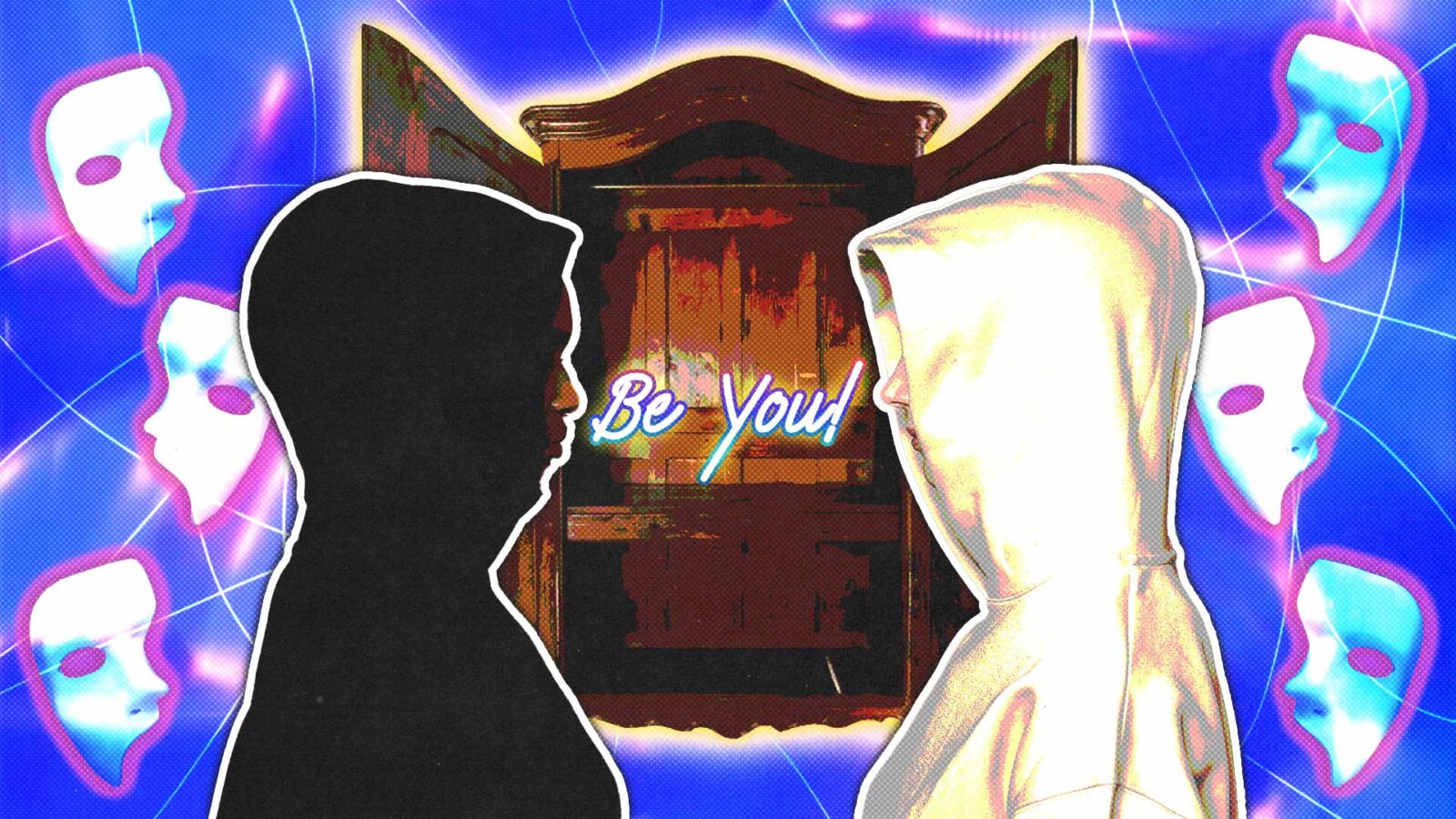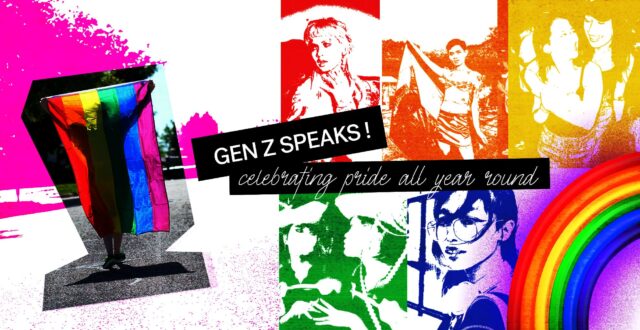Just like with any experience in life, there’s no one-size-fits-all for coming out, and it’s only yours to tell.
Related: Rainbow Washing 101: Why Pride Goes Beyond Putting A Rainbow Sticker On A Product
When talking about the LGBTQIA+ community, the conversation usually touches upon coming out. In the heteronormative society we live in, it’s almost expected for every queer individual to have their own “coming out”, or the moment they opened up who they are to a wider audience, whether that be to friends, family, or even the general public. But while it is assumed that every member of the LGBTQIA+ community has their own coming out story, like with any experience, it isn’t uniform for everyone.
Everyone has their own journey to self-discovery, and that includes coming out, an extremely personal decision that has no format on how it should be. Every LGBTQIA+ person’s coming out story is different as coming out and accepting one’s sexual orientation and gender identity are not always easy or as simple as some might think it is.
It requires a nuanced approach, something these Gen Z members of the LGBTQIA+ community know. We recently chatted with four young queer individuals: Christine (23, bisexual), Angel (23, gay), Paolo (24, gay), and Matt (gay), as they opened up about their own coming out experiences, what it means to come out, dealing with pressure, and more. Read on below to read their stories.
What does the phrase “coming out” mean to you?
Christine: Being true to yourself and making peace with the fact that you are different and there’s nothing to be ashamed of. It also means being in touch with my true self and finally pursuing my heart’s desires without hesitation. and celebrating my identity and fully embracing everything that makes me “me”.
Angel: Coming out is a privilege and a personal decision. There’s no need to rush nor to owe other people the closure or signifier to come out – it’s a lifelong process. In my case, I am privilege to have a supportive and understanding parent.
Paolo: For me, the phrase “coming out” means more than just the disclosure of one’s sexuality to other people. It is inviting people in my life to accept my truth that I had to suppress for years due to society’s norms. Not all people may accept who I am, but through coming out, I am able to regain the power and sense of self that I had been hiding just to conform with what I thought was “normal” even if I know that isn’t my genuine self.
Matt: Coming out is an explicit admission of one’s sexual orientation or gender identity. Before coming out to my parents, I kinda thought I wouldn’t really need or want to come out. For years before we had that conversation, I stopped caring about hiding that part of myself. The idea I had at the time was: “Anyone who cares should be able to figure it out, and if they don’t bring it up, neither will I.” I knew my parents wouldn’t hate me for being gay, and I assumed that meant coming out wouldn’t change our relationship. I’ve since realized there is power in acknowledging my queerness explicitly, because it forces others to consider it as well. Like I could have gone through life not knowing for certain if my parents accept my gayness or just ignore that part of me – it would have been much less awkward than having all those conversations. I’ve found that not vocalizing a personal truth that is foundational to who I am and how I relate to others is damaging to myself and my relationships. Coming out makes it clear to myself and anyone I come out to: if you want a relationship with me, this is something you need to accept.
Have you personally come out? If yes, what was the experience like? If no, what made you decide not to?
Christine: I think everyone knew except my parents. Most of my friends are also part of the LGBTQIA+ community, so it wasn’t really a big deal when I told them. They kinda knew from the start and they’ve always shown me love and support, and I’m really grateful to have been surrounded by amazing people. I’m glad that I came out because I feel more aligned with the person I am now. I have a dysfunctional relationship with my parents, so I don’t ever plan on telling them. I don’t really seek their “acceptance” because we’re not close like that. I’m perfectly okay with it.
Angel: Yes, it feels liberating and free but at the same time it just feels natural and normal.
Paolo: Yes, I have personally come out. It started in high school, shyly sharing my sexuality with a few close friends in high school. It felt liberating because I did not have to hide who I was and the type of person I’d like to love because my friends openly accepted me. There may have been some questions, but their willingness to get to know me more helped us become closer.
Matt: I first came out to some friends at the start of high school which is now more than 10 years ago, but I didn’t come out to my parents until 2019. My coming out experience was relatively chill. No one got upset or called me a slur or anything, but some things people said do still stick with me. Most people I told were very gracious (relatively speaking – we were teenage boys). A few people chose to react by framing their concerns around the issues queer people in general face, which I generously choose to see as well-intentioned. I remember one of my parents specifically saying (with a completely straight face) that I should look into IVF, because they’d (singular) never consider an adopted child real family. That was probably the worst thing I was told. Considering I was discovering my queer identity in the early 2000s, I am aware of how bad coming out stories can get so I do consider myself luckier than most other gay men of the time.
What do you wish more people knew about when it comes to coming out or being ready to be your true self to other people?
Christine: It takes time. I know that a lot of people are coming out now, and some people might ‘pressure’ you to come out just because they feel frustrated about your sexuality. But don’t let it get to you. It’s about your own timing. I always tell people, ‘Move at your own pace.’ We each have our own timing and pace. Coming out requires a lot of strength and bravery, and it’s not easy. Not everyone is surrounded by a safe space and supportive people. But I want you to know that you are not alone and that there is a community that will love and accept you. Whenever you are ready. 🙂
Angel: No need to rush, coming out does not correspond to being your true self. You can be your true self without even the means of coming out to someone. It’s a lifelong process and a preference to come out.
Paolo: “Coming out” is not always easy, as there will be people imposing their beliefs on you. If you feel you’re ready to come out after a series of self-questioning moments, also make sure that you have a safe space to go to. Even during progressive times, your bubble (especially your family) may exert pressure on you to conform with society’s norms. Just to be ready, only do so when you believe you have people to rely on and/or you are personally financially capable of being independent.
Matt: Being your true self is something you need to be ready for, because it is a struggle sometimes. It isn’t easy “just being yourself” – it takes a lot of introspection to even know yourself especially because relating to others often means minimizing the ways you differ from them. Coming out will not be the moment everything falls into place, but it gives you direction. It tells you and the people you take along in life where you see yourself going – the person you see yourself becoming.
Gen Z is known to be very welcoming and accepting towards the LGBTQIA+ community. With that, do you think there’s still a need for people to “come out”?
Christine: Yes, I think so. Being part of the LGBT community is not a black and white situation. I strongly believe you shouldn’t assume someone’s sexuality or out them. Coming out allows you to express your true identity, prevents misunderstandings, and helps you connect with people who support and understand you better.
Angel: I don’t think so, as our generation is more accepting of different paths and respects decision/boundaries. There’s no need for people to come out.
Paolo: For me, “coming out” is not just about non-heterosexual individuals opening themselves to the world. However, it is the general belief that people be given the chance to assess who they are and what they want (without judgment) as they grow up. Hence, I believe that people need to come out regardless of their sexuality, with the assumption that they may or may not adhere with society’s norms, to own their truth and have a firm stand of who they are.
Matt: I think the idea that Gen Z is more accepting is comforting, but it would be dangerous to take it for granted. The acceptance Gen Z and Gen Alpha experiences now is hard-fought, and we can celebrate how far we’ve come as a community, but if we forget that our struggle for equality isn’t over, we will lose ground. I do not want to spend any amount of time convincing queer people to come out, because that is a journey they should take at their own pace. However, I will say coming out can be a small political statement that each queer person can make. Even if you can’t commit anything else to the cause, explicitly queer existence can be a human, living reminder for whose rights the community stands.
What advice would you give to other young people who are struggling with coming out or discovering who they are?
Christine: Coming out isn’t easy, but it’s incredibly liberating and empowering. When the time is right, you’ll know and you’ll be ready. Give yourself a space to just be. Don’t succumb to societal pressures, because ultimately, it’s about your journey, not theirs.
Angel: As BINI says, buhay ay di karera. Determining who you are and who you like is a lifelong process and sometimes it takes a long time and it’s normal, determining your true self should not feel any pressure or difficulty and labeling is something we should never put someone on the spotlight since it’s a lifelong process. Live your life as you want, as long as you’re happy with who you are currently – so be it.
Paolo: It’s okay to take your time to discover who you are. There is no single timeline on when you may come to realize things and to. Come out when you feel that you know and have accepted yourself. This is one of the first steps towards loving yourself better and getting to appreciate the world better. If you feel that you can’t or don’t have to come out, it’s also okay. You don’t owe people your truth.
Matt: If you (think you) are queer, find the community. We do not learn what it means to be a person without first experiencing community and learning through our families, schools, or whatever other social groups raised us. A lot of what it means to be queer is personal, and that can lead us to believe it all is. I have grown so much as a gay and queer man, when I pushed through my insecurity and immersed myself in gay culture. There is a wealth of knowledge about yourself you will only find in others, and I encourage everyone to seek it out. If you think the community isn’t for you, you aren’t looking hard enough. It doesn’t need to be in gay bars or on the apps (definitely not on the apps) – the community is there waiting for you to find it in whatever way you feel comfortable.
Continue Reading: Gen Z Speaks: Why It’s Important To Celebrate Pride All Year Long





